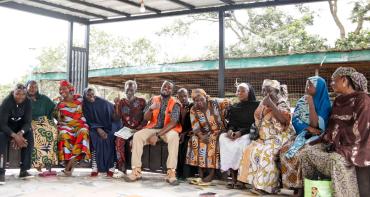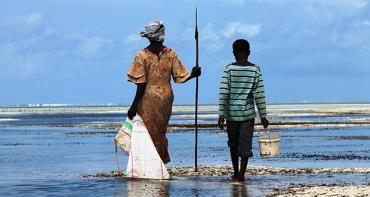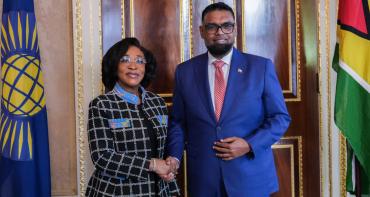The Commonwealth Secretariat has launched a new best practice guide that will assist policymakers and practitioners across the Commonwealth to integrate gender equality into national climate action.
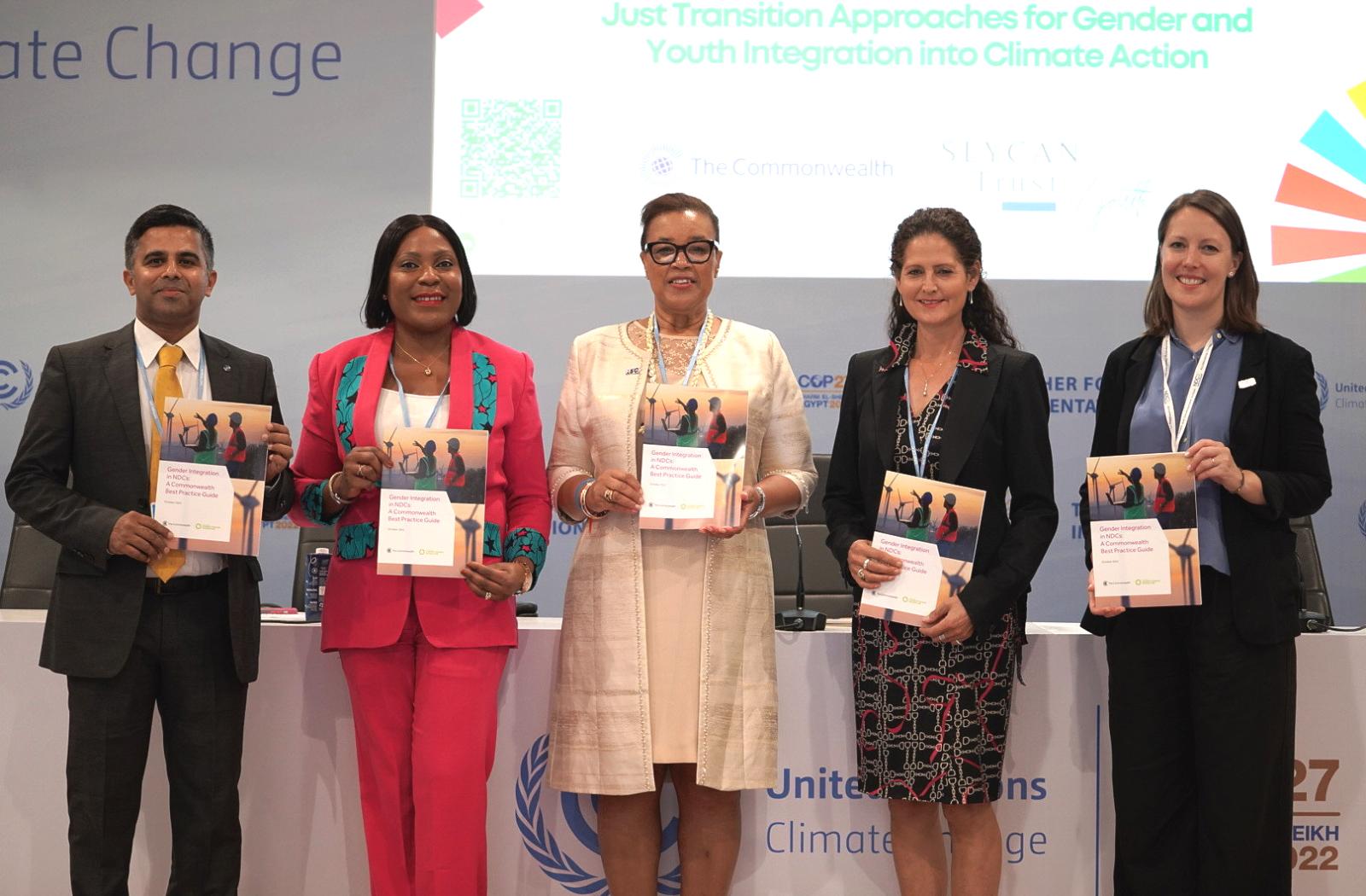
Commonwealth Secretary-General, Rt Hon Patricia Scotland, KC, unveiled the publication during a side event co-organised by the Commonwealth Secretariat & SLYCAN Trust on 11 November, in the margins of the UN Climate Change Conference COP27 in Sharm El-Sheikh.
Titled “Gender Integration in Nationally Determined Contributions: A Commonwealth Best Practice Guide”, the handbook includes a range of detailed evidence-based approaches to incorporating gender equality within a country’s national climate plans, or ‘Nationally Determined Contributions’ (NDCs) under the Paris Agreement.
The aim is to ensure the engagement of all sections of society – including women, who make up half the global population – as positive agents of change, and to include them in all aspects of climate action, from decision-making to implementation across the 56 Commonwealth nations.
Secretary-General Scotland said:
“The Commonwealth has firmly committed to gender equality and youth empowerment through the Declaration on Gender Equality and Women’s Empowerment 2021-2030. This year’s Commonwealth Heads of Government Meeting reaffirmed the commitment to driving inclusive, gender sensitive and gender responsive climate mitigation and adaptation initiatives.
“I encourage you to utilise this resource, as we strive toward improving integration of gender in NDCs as the bedrock for successful climate action.”
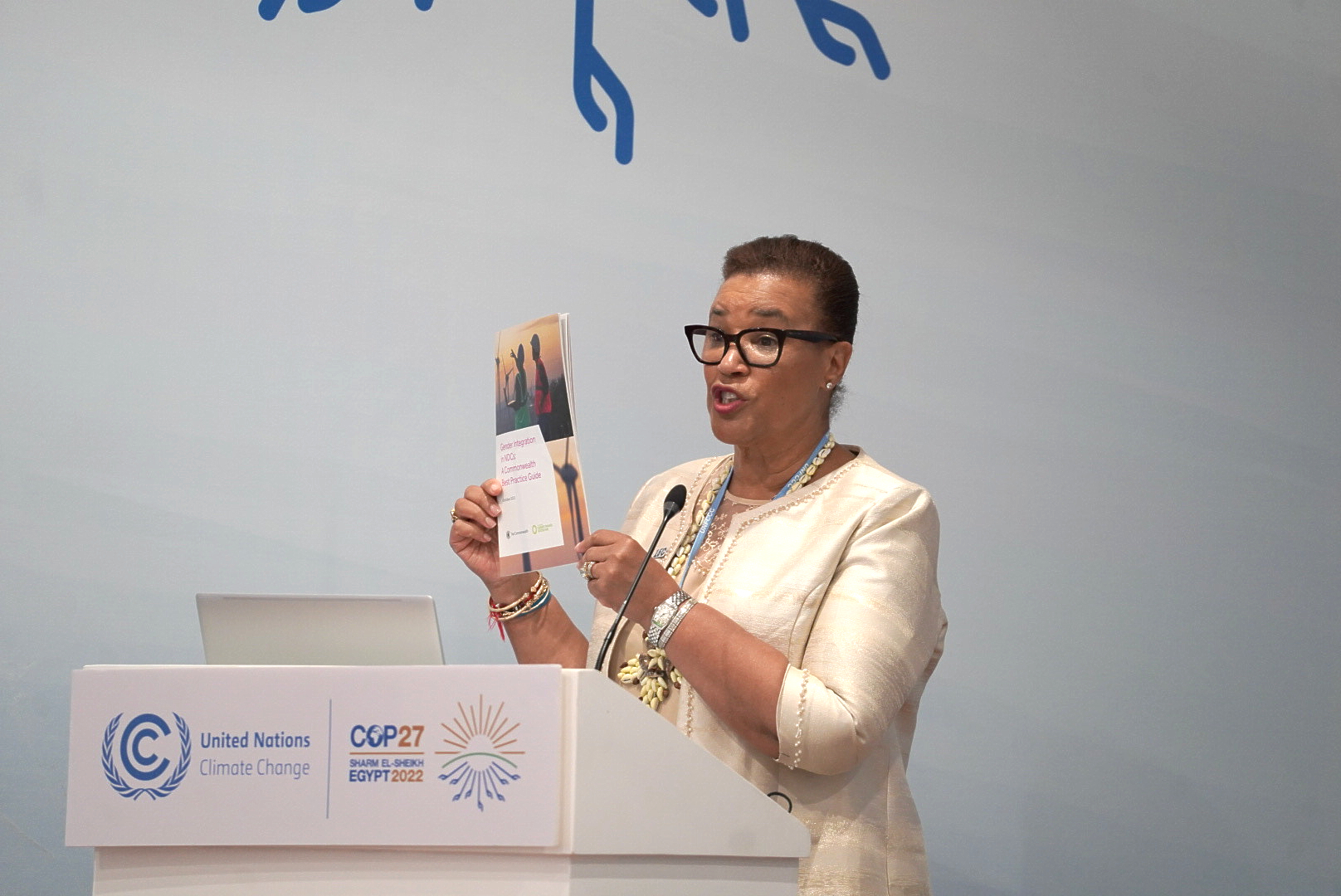
Tangible action points
One of the highlights of the best practice guide is the timeline of tangible action points proposed from now to 2025, to help users practically integrate gender in their NDCs.
Climate Change Adviser at the Commonwealth Secretariat, Uzoamaka Nwamarah, said this coincides with the next NDC update cycle, when governments are expected to submit updated, more ambitious climate plans to the United Nations Framework Convention on Climate Change (UNFCCC) Secretariat. These NDC commitments cover a period of five years, with the last submissions made in 2021, after the COVID-19 pandemic pushed the deadline back by a year.
“We want to make sure that as much as possible, the updated NDC submissions and subsequent implementation of these by Commonwealth member countries include strong gender components by 2025,” Ms Nwamarah said.
Five key sections covered
The best practice guide covers five key sections:
- Policy alignment and clarity of intent;
- financing gender expertise and gender budgeting;
- skills for a gender-just transition;
- evidencing a gender-just transition;
- and institutional collaboration.
Each section covers practical steps to facilitate the integration of gender into countries’ NDCs, including guiding questions and tips for resolving common hurdles, along with a wide range of examples of best practices from across the Commonwealth to support learning and knowledge-sharing.
Building upon the set of recommendations identified in previous Commonwealth reports (first and second editions) titled, ‘Gender Integration for Climate Action: A Review of Commonwealth Member Country Nationally Determined Contributions’, the new guide also details the Commonwealth’s progress under each best practice area; and identifies room for further support through initiatives such as the Commonwealth Climate Finance Access Hub.
- Download Gender Integration in Nationally Determined Contributions: A Commonwealth Best Practice Guide
- Watch the livestream of the COP27 side event and launch of the publication: Strengthening Capacities for Innovative Just Transition Approaches for Gender and Youth Integration into Climate Action
Media contact
- Josephine Latu-Sanft Senior Communications Officer, Communications Division, Commonwealth Secretariat
- +44 20 7747 6476 | E-mail

